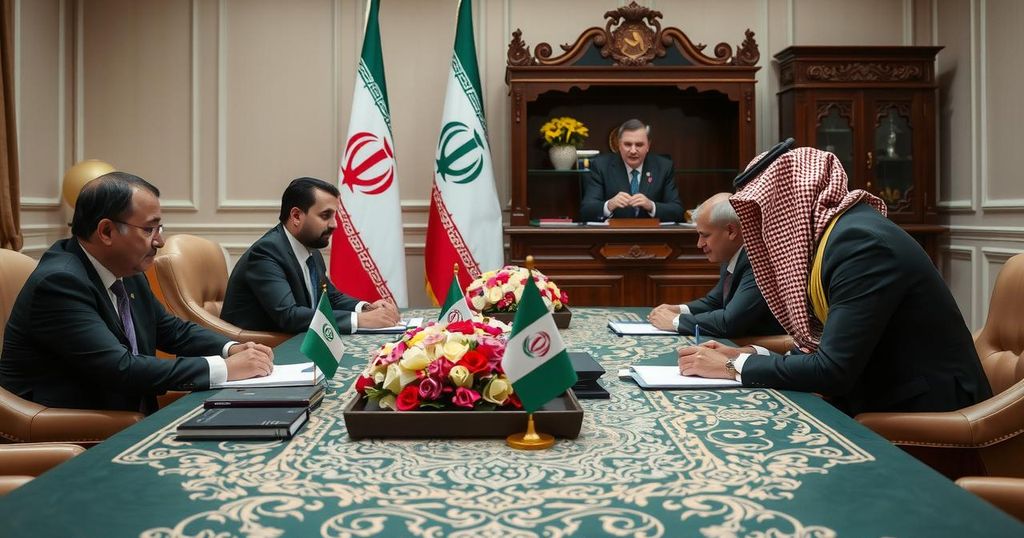Iran has summoned the Saudi ambassador to protest the execution of six Iranian nationals sentenced for drug trafficking. Iran’s Foreign Ministry criticized the lack of prior notification, claiming it violates international law. The case raises concerns about Saudi Arabia’s execution record, with reports indicating a high number of executions in recent years and opaque judicial processes.
In a diplomatic move, Iran has summoned the Saudi ambassador in Tehran to express dissatisfaction over the recent executions of six Iranian nationals in Saudi Arabia, who were sentenced on charges of drug trafficking. The Director General of the Consular Affairs Office at Iran’s Foreign Ministry, Mr. Karimi Shasati, indicated that a formal note of protest was delivered to the ambassador, indicating that the actions taken by Saudi Arabia undermine the cooperative judicial relationship between the two nations.
Mr. Shasati asserted that the executions executed without prior notice to the Iranian embassy constitute a violation of international legal standards, notably the Vienna Convention on Consular Relations. Furthermore, a delegation from the Iranian Ministry of Foreign Affairs is anticipated to travel to Riyadh to seek clarifications regarding the matter. The Iranian Ministry had previously endeavored to communicate with authorities to secure consular support and obtain leniency for the condemned individuals, highlighting the contentious nature of the issue.
Internationally, reports have shed light on Saudi Arabia’s concerning record of executions, with over 1,243 individuals put to death between 2010 and 2021, as reported by reputable organizations such as Reprieve and the European Saudi Organization for Human Rights (ESOHR). The lack of transparency regarding capital trials raises significant human rights concerns, marking Saudi Arabia as one of the world’s leading executioners.
This incident highlights the longstanding tensions between Iran and Saudi Arabia, particularly in the context of human rights and diplomatic relations. The execution of Iranian nationals in Saudi Arabia has escalated diplomatic friction, as Iran emphasizes the principle of consular notification as stipulated by international law. Moreover, Saudi Arabia’s high rate of executions has been a point of contention, drawing criticism from human rights organizations globally, who call for increased transparency about capital punishment cases. The Vienna Convention on Consular Relations is pivotal to consular access and protection, making such violations particularly sensitive in international diplomacy.
In conclusion, the execution of six Iranian nationals in Saudi Arabia has prompted significant diplomatic repercussions, leading Iran to formally protest against the actions. The incident underscores the fragility of judicial cooperation and highlights broader issues surrounding human rights practices in Saudi Arabia. With a legal delegation set to engage with Saudi authorities, the situation will require careful navigation to avoid further escalation in relations between the two regional powers.
Original Source: www.presstv.ir






